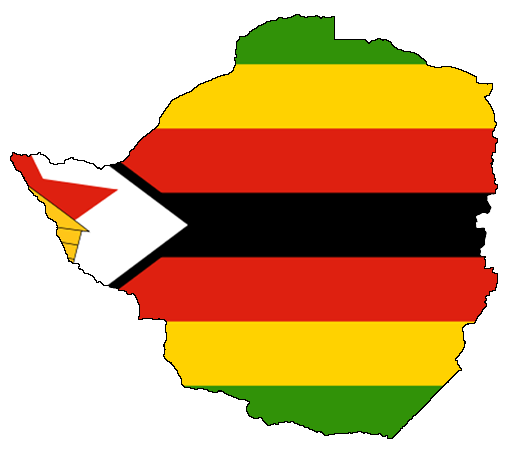
Conditions prevailing in Zimbabwe aren’t conducive to the successful holding of a free, fair and credible election.
Report by Mutsa Murenje
From this standpoint, I have thus built a case for reconciling our highly polarised nation.
As long as the political and tribal divisions remain, I am afraid, Zimbabwe will remain an infant (of course, in political and economic terms). Diversity is important, but unity surpasses diversity.
I don’t understand development in its limited sense of economic progress though. I have seen over the years that economic progress means nothing to us if our more pressing needs are always frustrated. I understand development in its integral sense because its orientation is towards holism.
But in reconciling our divided nation, I intend to bring to your attention the fact that in this troubled continent of ours, Africa that is, approximately one person in two subsists on less than US$1,25 per day, with approximately 70% living in rural areas; 32 of the 48 poorest countries are located in sub-Saharan Africa, which is plagued by conflicts, dysfunctional governments, and clinical diseases like HIV and Aids.
Food security and livelihood for the rural poor are at risk as almost all sub-Saharan agriculture is rain-fed and has become vulnerable to weather shocks.
Perhaps this explains why the gap between rural and urban communities and the need for integration have drawn much attention from governments and civil society in Africa.
- Chamisa under fire over US$120K donation
- Mavhunga puts DeMbare into Chibuku quarterfinals
- Pension funds bet on Cabora Bassa oilfields
- Councils defy govt fire tender directive
Keep Reading
Moreover, our continent profiles the highest statistics of violent conflicts in the world and each time that I think about President Robert Mugabe’s defiant behaviour, I am shortly reminded that he is preparing the nation for a violent confrontation.
It is redundant for me to remind peace-loving Zimbabweans about Mugabe’s panoply of coercive tools. We all know them. The possibility of a violent confrontation is very high especially given the high levels of polarisation in our country.
I am not convinced though that ours are irreconcilable differences. We have selfish individuals in our country who are piling riches for themselves at the expense of all of us.
This alone is a potential cause of conflict (if we don’t become like the Niger Delta or Jos in Nigeria, then we risk seeing yet another nation being formed from a secession process).
The point is: Our needs are being frustrated and sooner rather than later, we will start doing what we have since witnessed in Tunisia, Egypt, Libya and other Arab countries in the Middle East. And when we do this, we don’t want to hear anybody saying that we are attempting to overthrow a “legitimate” government using unconstitutional means.
Political violence is inevitable in Zimbabwe and, as I am writing this, our brothers and sisters, mothers and fathers, grandmothers and grandfathers are being terrorised by Zanu PF hooligans.
Douglas Nyikayaramba, Martin Chedondo, Patrick Chinamasa and Rugare Gumbo have been making incendiary statements ahead of the much-talked-about elections next year.
And I am, more than anything else, worried about the plight of our women and children. This is largely so because these account for 80% of the casualties of conflict and war as well as 80% of the 40 million people worldwide who are homeless.
Children are especially vulnerable in conflict and violent situations due to their age, physical and mental immaturity, limited abilities and dependency on adults. Conflict threatens children’s access to quality health care, nutrition, clean water and sanitation.
It disrupts childhood when schools are closed or used to house displaced families; in some settings, educational institutions are at risk of attack (Zanu PF uses these as bases or torture chambers). Children are particularly vulnerable to violence and recruitment by Zanu PF thugs.
As for women, we already know that they are discriminated against during times of peace and conflicts further exacerbate their plight. Women’s experience of violent conflict is multi-faceted: it means separation, loss of relatives, physical and economic insecurity, and increased risk of sexual violence, wounding, detention, deprivation and even death. Rape and other forms of sexual brutality are integral to violent conflict and often carried out with impunity.
You can imagine: all this happens to them because they or their husbands or relatives are members of a certain political party! I have been paying rapt attention to recent and unfortunate developments in our country and have realised that we are destroying confidence instead of building it. The recent incident in Kadoma in which Zanu PF thugs savagely attacked and wounded an MDC family is quite unfortunate.
This is a recipe for disaster. I happen to be a disciple of early warning systems and conflict prevention and I prefer conflict prevention to management.
So what’s the way forward? We all want peace. Peace doesn’t, however, mean the absence of conflict/divisions/disagreements.
It rather refers to how we handle conflict in the presence of justice. Reconciling our divided nation, therefore, requires nothing short of truth, justice, mercy and forgiveness.
I understand them in the manner in which I presented them and I believe that together we can reconcile our polarised nation. Yes, we can.
Murenje is a social and political commentator based in South Africa.










